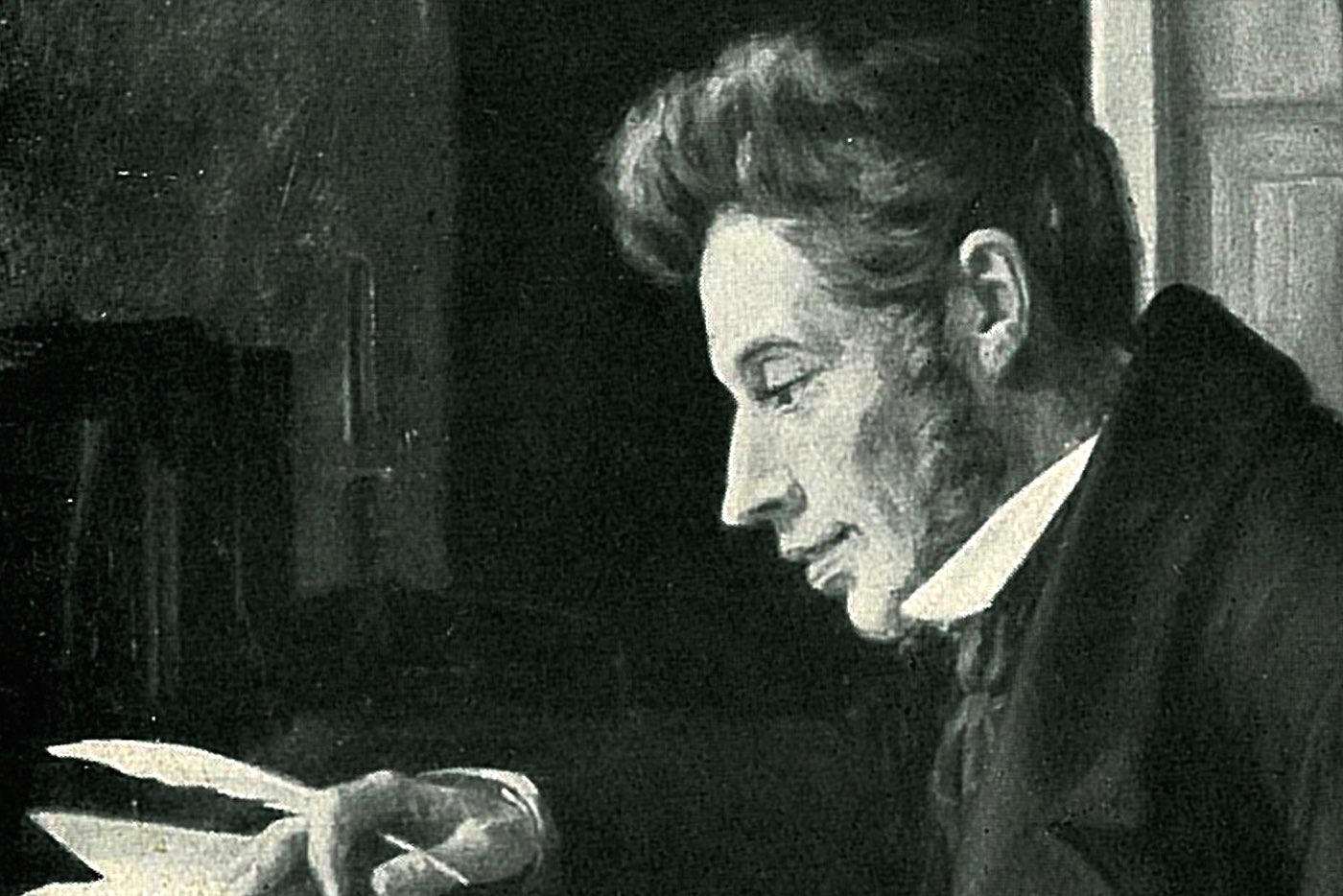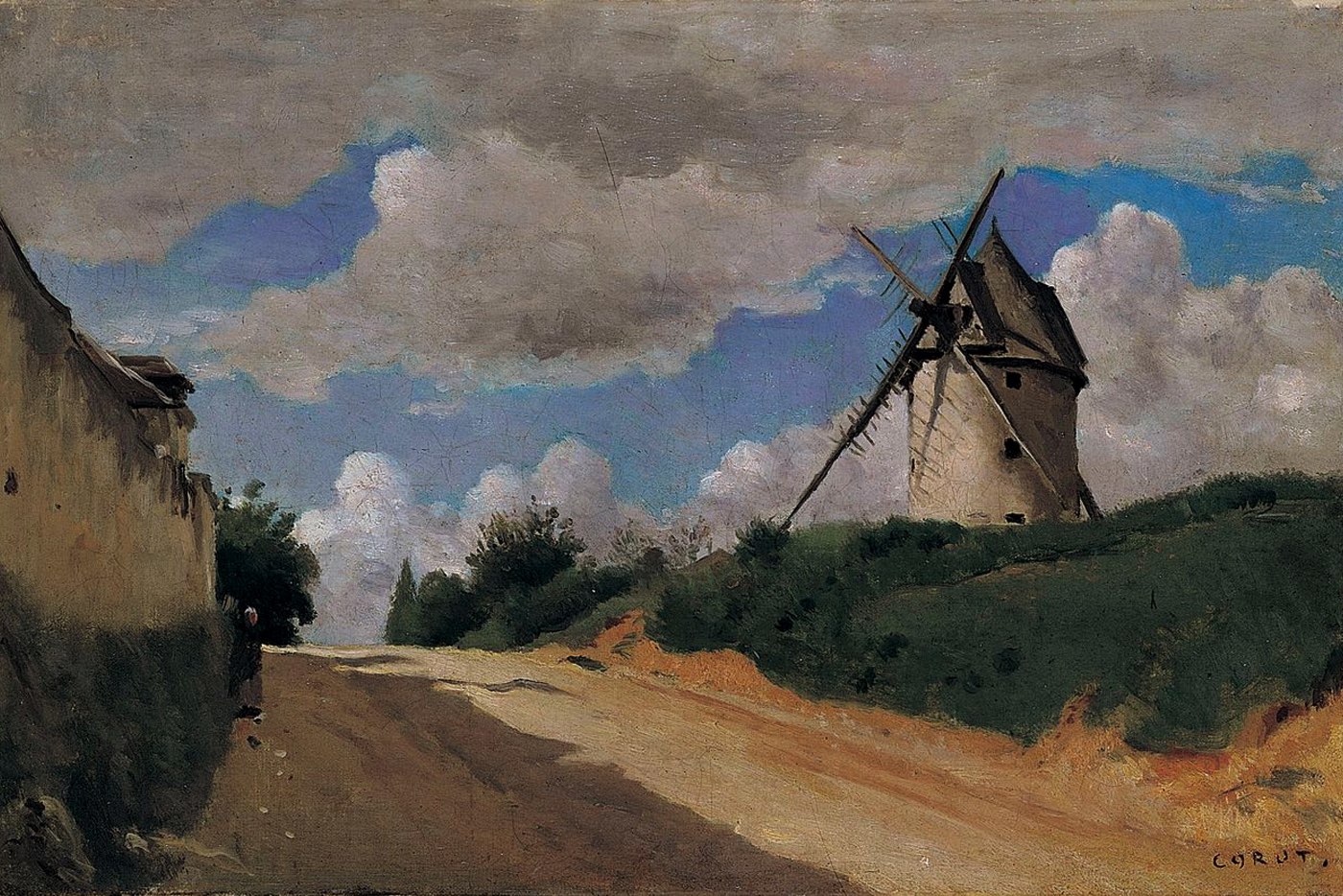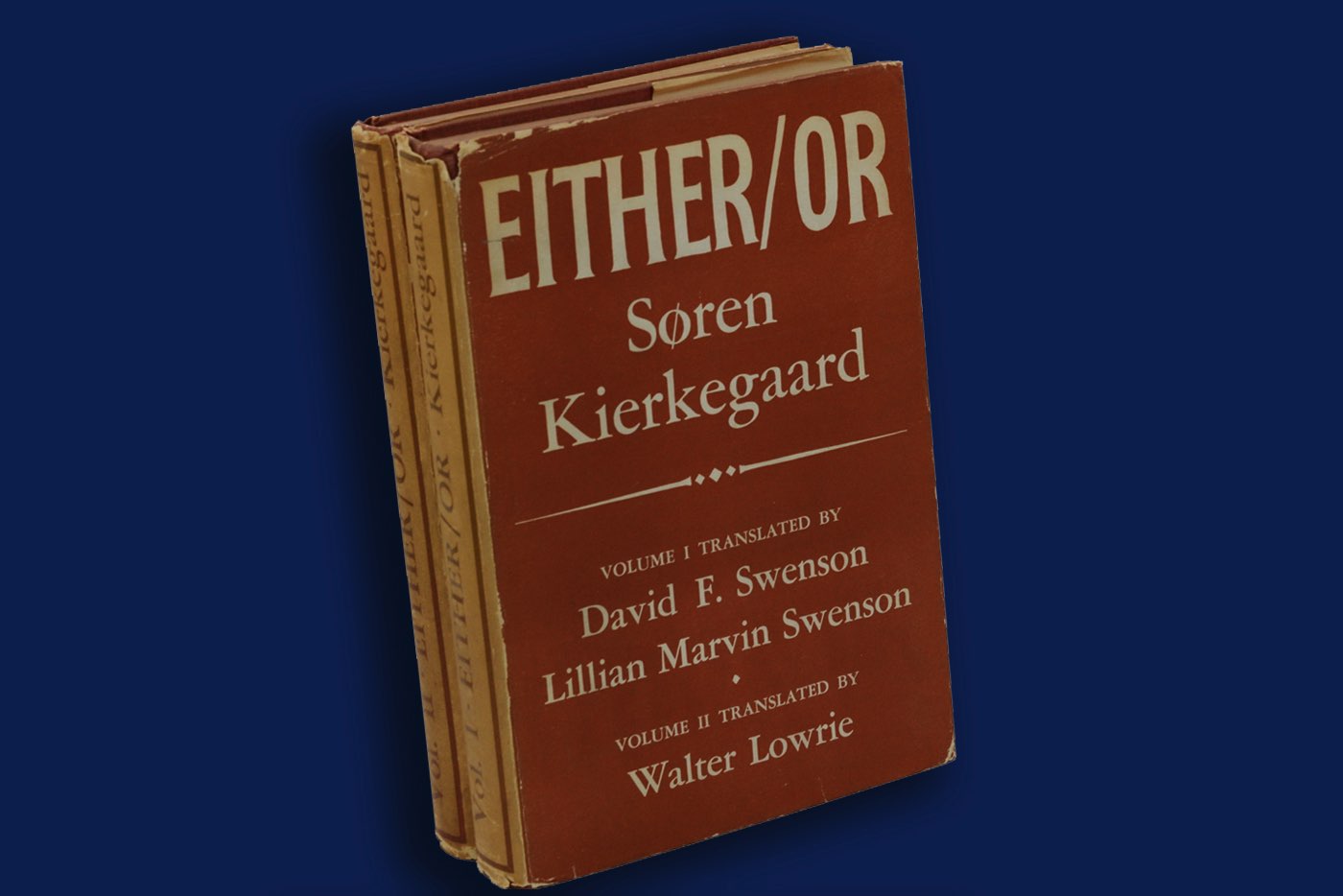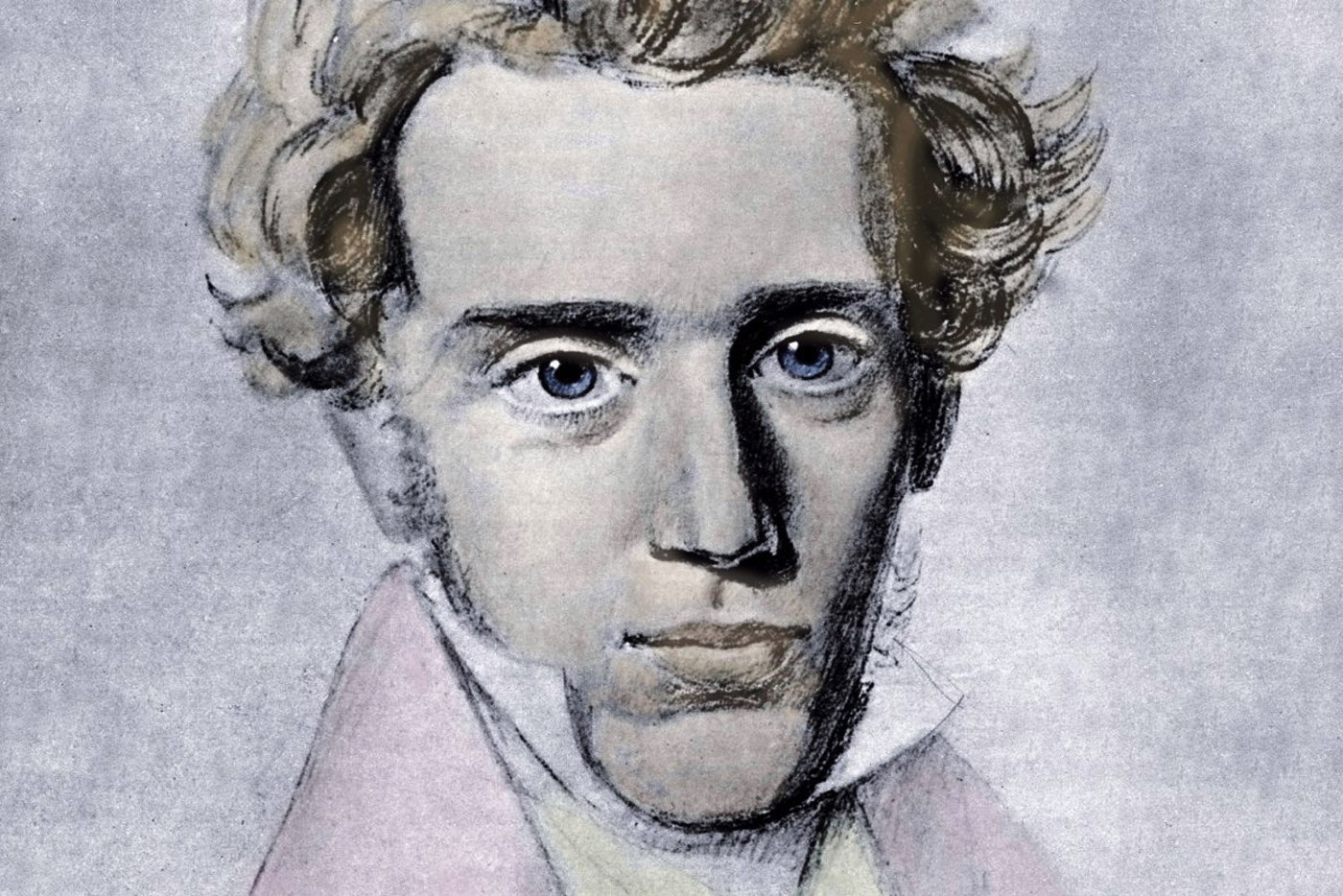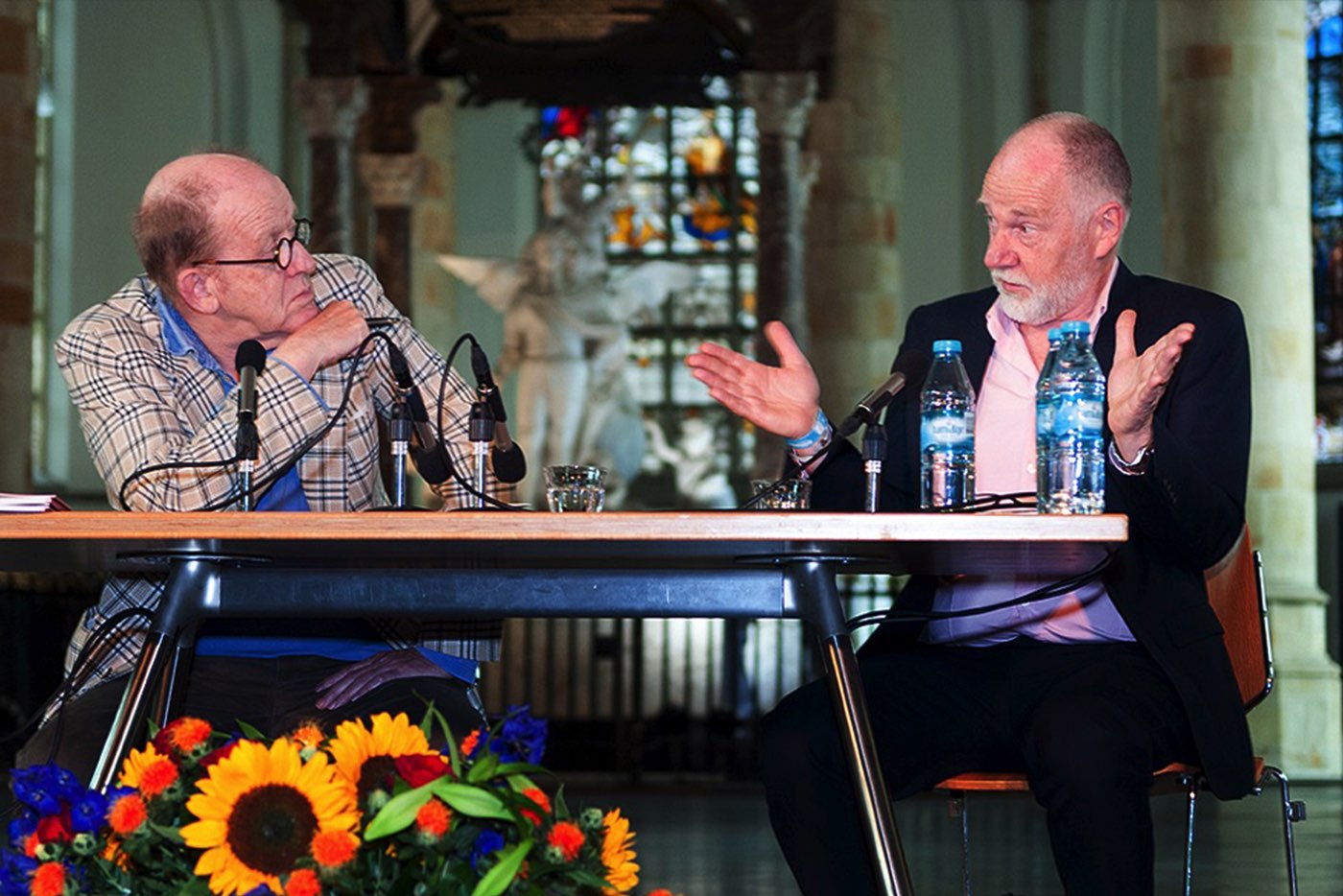Thuistezien 176 — 13.02.2021
Kees ’t Hart
De stilte van het ogenblik
De stilte van het ogenblik
The retrieval of an unread booklet by Kiekegaard leads to a historic narration by the method of the detour. The work of the Danish philosopher recalls memories, creates moments of active disrembering and it even appears to be infected. But there is no holding back: it has to be read. Kees ’t Hart gives new meaning to the work of Kierkegaard and makes a case for silence.
Since last year, return limits of library books are randomly automatically extended every couple of months. The excuse ‘not enough time to read’ does not apply anymore. But what to do if you are willing to return a book but you are too late? Or is it never too late? In ‘The Silence of The Moment’ (West, 2013), the I-person is at a loss. A yellow, borrowed book ‘was an infected book, let me put it this way: it became infected. Initially, it was just an ordinary book, that landed unread on one of the bookshelves. Three weeks onwards, is was infected’. After many years, he is able to read it. It was useless to ignore the dirtyish yellow odd booklet ‘as if it would disinfect by itself’. The detour had started.
Fragmented parts of Kierkegaards work are interwoven in the historic ‘account’. The philosopher is described as a religious fundamentalist and a philosophic terrorist. According to Kierkegaard there is no such thing as a little truth or a half truth. ‘Its or or. Either you choose an ordinary life (he coins this as the ‘esthetic life’), and you become like everyone else (a so called prick), or you choose and ‘esthetic’ life, and maybe then you are able to shed your burden.’ Eventually, there is nothing to comprehend. ‘It is or/or. And the why-question in relation to Kiekegaard is always the wrong question. It is not why, but or/or. And the silence of the moment.’ In the meanwhile, the I-person wonders ‘when did my Kierkegaard disease start?’ Is the disease connected to the unread book? A book infection seems unlikely. Still, the book was necessary ‘(read implies need)’ for the cure and arrived right on time.
Download PDF
Text: Marienelle Andringa
Since last year, return limits of library books are randomly automatically extended every couple of months. The excuse ‘not enough time to read’ does not apply anymore. But what to do if you are willing to return a book but you are too late? Or is it never too late? In ‘The Silence of The Moment’ (West, 2013), the I-person is at a loss. A yellow, borrowed book ‘was an infected book, let me put it this way: it became infected. Initially, it was just an ordinary book, that landed unread on one of the bookshelves. Three weeks onwards, is was infected’. After many years, he is able to read it. It was useless to ignore the dirtyish yellow odd booklet ‘as if it would disinfect by itself’. The detour had started.
Fragmented parts of Kierkegaards work are interwoven in the historic ‘account’. The philosopher is described as a religious fundamentalist and a philosophic terrorist. According to Kierkegaard there is no such thing as a little truth or a half truth. ‘Its or or. Either you choose an ordinary life (he coins this as the ‘esthetic life’), and you become like everyone else (a so called prick), or you choose and ‘esthetic’ life, and maybe then you are able to shed your burden.’ Eventually, there is nothing to comprehend. ‘It is or/or. And the why-question in relation to Kiekegaard is always the wrong question. It is not why, but or/or. And the silence of the moment.’ In the meanwhile, the I-person wonders ‘when did my Kierkegaard disease start?’ Is the disease connected to the unread book? A book infection seems unlikely. Still, the book was necessary ‘(read implies need)’ for the cure and arrived right on time.
Download PDF
Text: Marienelle Andringa

 previous
previous next
next 